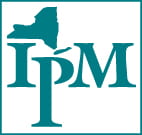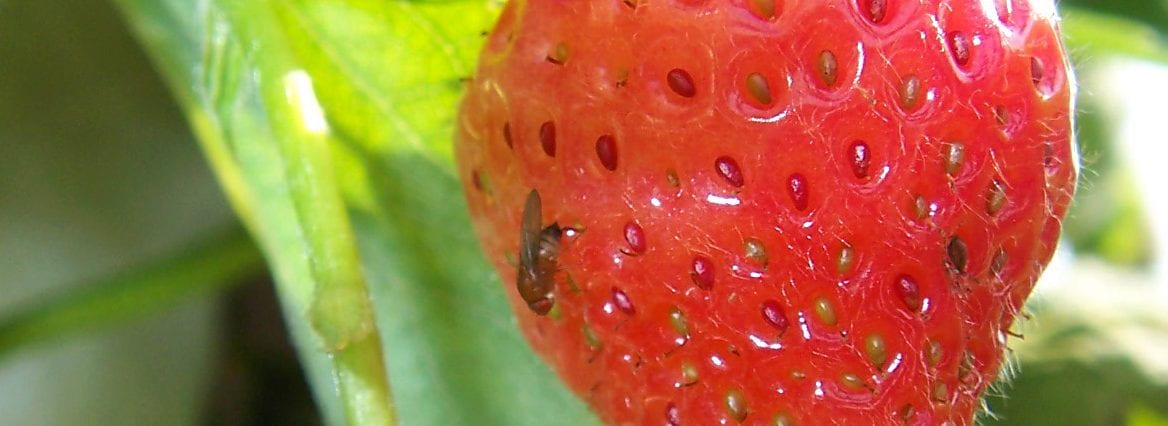An important warning from Dow AgroSciences, the manufacturer and distributor of the organic-approved insecticide, Entrust SC, about the use patterns of this product for control of SWD - don't overuse it, follow label directions and rotate with a different active ingredient. (Excerpts from their letter are in quotes. I've added bold emphasis.)
It is crucially important to follow the "labeled resistance management restrictions for Entrust SC in organic cropping systems in the Northeastern United States targeting Spotted Wing Drosophila." It is my understanding that, in New York, Entrust is under a 2ee registration and you must have the 2ee in your possession when applying this insecticide; ask your supplier.
"Entrust SC Insecticide is a solution for control of economically important arthropods across many different crops. This product is registered for organic use and is OMRI certified. The active ingredient Spinosad is a group 5 insecticide, which offers a unique mode of action. Dow AgroSciences is proud to offer a unique class of chemistry for organic growers."
Insecticide rotation to different IRAC groups
"At Dow AgroSciences we take (insecticide) resistance very seriously and investigate all situations we are aware of in which non-compliance may be occurring or where performance is in question. We strive to make sure our products are stewarded correctly in the market to follow label language with regards to use patterns. Specifically, our labels include Resistance Management directions which state that rotation to other insecticide classes should occur after two consecutive applications." For many fruit crops, only three total applications of Entrust may be applied per season—read and follow label directions.
Organic insecticide rotation guidelines -
For organic management of SWD, rotate to a different insecticide active ingredient after applying one, no more than two or three (depending on the crop label) Entrust (group 5 insecticide) sprays. Options for rotation partners include the active ingredients azadirachtin (group UN insecticide) and pyganic (group 3A insecticide). While spinosad (Entrust) has good to excellent activity against SWD, azadirachtin and pyrethrin have fair to poor activity against SWD. Save Entrust applications for when SWD populations are high and fruit is at high risk.
Azadirachtin is the active ingredient derived from neem oil. Trade names include, but are not limited to, AzaSol, Aza-Direct, AzaGuard, AzaMax, and Azatrol EC. These insecticides may not be labeled on all fruit crops, so read the label carefully before purchasing and using this insecticide. Group UN - mode of action is unknown or uncertain.
Pyrethrins are active ingredients derived from the plant Chrysanthemum cinerariifolium. Pyrethrin insecticides are highly toxic to bees, so don't use these when pollinators are active. Trade names include, PyGanic EC 1.4 and PyGanic EC 5.0. These insecticides may not be labeled on all fruit crops, so read the label carefully before purchasing and using this insecticide.
Insecticide application frequency and amounts per season
Dow AgroSciences has also "been made aware that Entrust SC is allegedly being used at a greater frequency than the label allows per crop. Dow AgroSciences is closely monitoring this situation to understand if these are isolated cases or more widespread occurrences." Entrust is typically limited to 3-5 applications per season, depending on the fruit crop, and always no more than a cumulative total of 9 oz per acre per season.
When an insecticide is applied too often and at higher cumulative rates than research on the chemistry warrants, a sensitivity shift in the target insects can occur over the course of a growing season. Over several growing seasons, SWD individuals with reduced Entrust SC (Spinosad) sensitivity could make up the majority of the SWD population in organic cropping systems. We are very concerned about this and work is ongoing to identify more effective insecticides for rotation partners in organic systems.
If resistance to Entrust SC (Spinosad) is selected in organic systems due to overuse and lack of rotation, IPM growers using the group 5 insecticide Delegate WG (Spinetoram) could lose this insecticide due to group 5 insecticide sensitivity shifts in the SWD population. Spinetoram is the chemically synthesized spinosad active ingredient and it, currently, has excellent activity against SWD—it, too, should not be overused. Likewise, if IPM growers overuse Delegate, this could have negative repercussions on the activity of Entrust.
Let's keep Entrust in the Northeast!
"...if non-compliance continues then Dow AgroSciences will pursue corrective action which could include withdrawal of Entrust SC from the Northeastern United States. If you have any questions, please contact your local Dow AgroSciences partner."
Take the time to learn about resistance management and follow the label directions that are designed to help prevent this from occurring.

